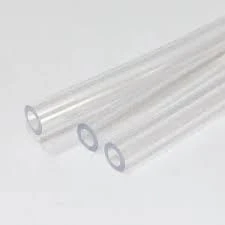Nov . 13, 2024 00:58 Back to list
hdpe sewer pipe
HDPE Sewer Pipes A Modern Solution for Wastewater Management
High-Density Polyethylene (HDPE) sewer pipes have emerged as a revolutionary option in the field of wastewater management, providing numerous advantages over traditional materials. Made from thermoplastic, HDPE pipes are known for their flexibility, durability, and resistance to corrosion, making them a reliable choice for sewer systems.
One of the primary benefits of using HDPE pipes is their resistance to chemical and environmental factors. Unlike concrete or metal pipes, which may corrode or degrade over time, HDPE pipes can withstand a variety of chemicals, including acids, bases, and salts. This characteristic significantly extends the lifespan of sewer systems, reducing the need for frequent replacements and maintenance.
HDPE Sewer Pipes A Modern Solution for Wastewater Management
HDPE pipes are also designed for leak-free connections. The fusion welding process used in joining HDPE pipes creates a monolithic system that prevents leaks, a critical factor in preventing groundwater contamination. This feature aligns with modern environmental standards and water quality regulations, contributing to sustainable wastewater management practices.
hdpe sewer pipe

Moreover, HDPE sewer pipes can handle extreme temperatures, making them suitable for various climates and conditions. Their ability to withstand drastic temperature changes ensures that they remain functional and reliable, regardless of environmental challenges.
The longevity and durability of HDPE pipes lead to cost savings in the long run. Although the initial investment may be higher than that for traditional materials, the reduced maintenance costs, lower risk of leaks, and lack of corrosion mean that water authorities and municipalities can save money over the operational life of the sewer system.
Another key consideration is the environmental impact of using HDPE in sewer applications. The production of HDPE is less energy-intensive compared to other materials such as PVC or concrete. Additionally, HDPE is 100% recyclable, promoting a circular economy and reducing plastic waste. As industries strive to increase their sustainability, utilizing HDPE materials aligns with these goals.
In conclusion, HDPE sewer pipes represent a significant advancement in wastewater management technology. Their numerous advantages, including resistance to chemicals, lightweight nature, leak-free joints, and long-lasting performance, make them an excellent choice for modern sewer systems. As we move towards a more sustainable future, the adoption of HDPE pipes will play a vital role in ensuring efficient and environmentally friendly wastewater management.
-
Durable PP Rigid Sheet: Lightweight, Chemical Resistant Solutions
NewsAug.21,2025
-
PVC Grey Sheet for Extraction: Chemical Resistant & Durable
NewsAug.19,2025
-
Durable PVC Pipe Fittings for Plumbing & Irrigation Needs
NewsAug.18,2025
-
HDPE Steel Belt Reinforced Spiral Corrugated Pipe | High Strength
NewsAug.17,2025
-
HDPE Pipe Fittings: Durable, Leak-Proof Solutions
NewsAug.16,2025
-
Premium CPVC Sheet: High-Temp & Chemical Resistant Solutions
NewsAug.15,2025

